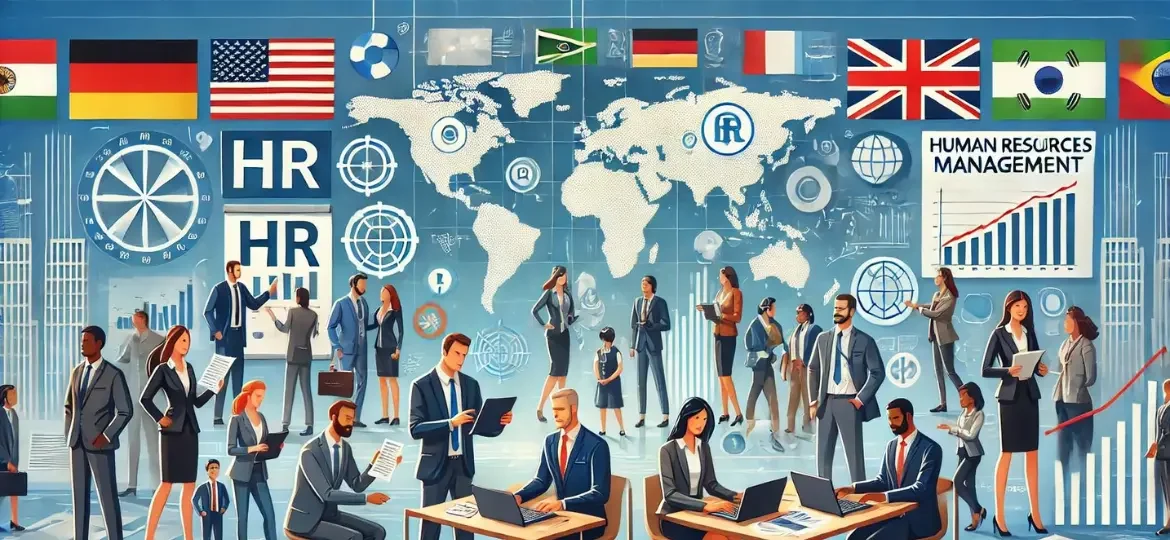
The Role of Human Resources Management in International Organizations
Human Resources Management in international organizations therefore refers to a list of functions that focuses on the employee to ensure that his/her performance brings out the best of the intended goals and objectives. HR professionals in this sector are responsible for:- Recruitment and selection
- Training and development
- Performance management
- Compensation and benefits
- Employee relations
- Compliance with local and international labour laws
- Crafting job descriptions that appeal to diverse candidates
- Utilizing global recruitment platforms
- Conducting interviews across different time zones
- Assessing cultural fit and adaptability
- Implementing cross-cultural training programs
- Offering language training for expatriates
- Developing leadership programs for global leaders
- Providing continuous learning opportunities through online platforms
- Setting clear, measurable goals
- Providing regular, constructive feedback
- Conducting performance appraisals that consider cultural contexts
- Implementing global performance management systems
- Conducting market research to determine competitive salaries
- Offering benefits that cater to diverse needs, such as healthcare and housing allowances
- Developing expatriate compensation packages
- Ensuring compliance with local tax regulations
- Implementing diversity and inclusion programs
- Conducting regular employee surveys to gauge satisfaction
- Addressing grievances promptly and fairly
- Promoting work-life balance through flexible work arrangements
Compliance with Local and International Labour Laws
Situating the labour laws is an essential component of the management of human resources in international organizations. In this case, the HR professionals need to be aware of the local laws while following international policies and procedures. This involves:- Monitoring changes in labour laws across different countries
- Implementing policies that comply with local regulations
- Conducting regular audits to ensure compliance
- Providing training on legal requirements to HR staff and managers
Careers and Opportunities in Human Resources Management for International Organizations
A chance to work within the frame of Human Resources Management with international organizations presents several avenues for professional advancement. Thus, there is a wide variety of tasks that can be faced by HR professionals, so the goals and expectations of the candidate can also be significantly different. Human Resources Management Generalist An HR Generalist in an international organization handles a wide range of HR functions, including recruitment, training, and employee relations. Key skills for this role include:- Strong communication and interpersonal skills
- Cultural awareness and sensitivity
- Knowledge of international labour laws
- Ability to manage multiple tasks simultaneously
- Expertise in a particular HR function
- Analytical and problem-solving skills
- Familiarity with global HR practices
- Ability to work collaboratively with other departments
- Leadership and management capabilities
- Strategic thinking and planning
- Experience with global HR practices
- Strong decision-making abilities
- Developing global recruitment strategies
- Conducting interviews and assessments
- Building relationships with international recruitment agencies
- Staying informed about global employment trends
- Identifying training needs across the organization
- Designing and delivering training programs
- Evaluating the effectiveness of training initiatives
- Promoting a culture of continuous learning
Development Opportunities in Human Resources Management for International Organizations
Human Resources Management in international organizations is a rich field in professional development enterprise for careerist human resource managers. The possibility to improve one’s competencies, the growth of career promotions, and the overall success of the organizations are also within these opportunities. Professional Certifications Obtaining professional certifications in HRM can significantly enhance career prospects. Some widely recognized certifications include:- SHRM-CP and SHRM-SCP (Society for Human Resource Management Certified Professional and Senior Certified Professional)
- GPHR (Global Professional in Human Resources)
- CIPD (Chartered Institute of Personnel and Development)
- Advanced degrees in HRM or related fields
- Workshops and seminars on global HR practices
- Online courses and webinars
- Join HR associations and organizations
- Attend industry conferences and events
- Participate in online HR communities
- Connect with HR professionals on social media platforms
- Gaining insights from experienced HR practitioners
- Receiving career advice and guidance
- Building confidence and leadership skills
- Expanding professional networks
- Exposure to different cultures and work environments
- Development of cross-cultural communication skills
- Opportunities for career advancement
- Enhanced understanding of global HR practices


